HOLLYWOOD hottie Paul Walker had not long landed in earthquake devastated Haiti when a friend gave him a tip - "A.L.B," she said. "A.L.B."
"What is that?" asked Paul Walker, star of the Fast & Furious movie franchise. She replied: "When you don't know what's going on, it's especially important to A.L.B - always look bitchin!"
"That's dope," says Walker now, looking back. "That's absolutely right, that's the way that I was raised by my father."
But what does it mean, exactly? Especially in the context of a disaster zone?
"Meaning, when the ****'s really bad, if you've gotta ask a question, before you ask that question, just watch - if you can't figure out what's going on and what needs to be done just through observation, you probably shouldn't be there."
And what was Walker doing there? He was bandaging, scrubbing wounds, hustling: "I'd made a few runs into Port-au-Prince and was negotiating with the army to give me baby formula, tents, extension cords ... I was hustling for everything."
That expedition, undertaken by Walker and "four buddies" has since turned into a charitable foundation, Reach Out Worldwide, and has taken Walker and his expanding team to Chile and Indonesia in the wake of disasters there.
The spark that begat the foundation was a not-so-subtle nudge from a mate.
"Because of my travels with work and pleasure, a lot of the times disasters would strike in areas that I'd been," Walker says. "You think of the faces - they might not be people you're in contact with but you can't help but wonder how that family was you had dinner with.
"That stuff starts crossing your mind and you feel so helpless. I would be consumed with anger, like, 'F*$k! I wanna be there, I wanna do whatever I can'. One of my best friends had heard it too many times and ultimately he just held me accountable.
"He punked me out: 'So you gonna pack your bags and go to Haiti and help out or what? I tell you what, if you're gonna go, I'm going with ya'."
From there they rallied a team - fire fighters, urban search and rescue, EMTs. They loaded up on supplies, flew into Haiti and, says Walker, "the first spot we saw that needed help, we just set up camp and started going to town".
All of this explains why, even after the box office success of 2009's Fast & Furious ($337 million worldwide), all of Walker's talk about using that "leverage" only turned into two films in the last two years - heist actioner Takers and now the new Fast & Furious 5.
"I find so much fulfilment in a lot of other things. The professional side of my life, it's fulfilling to a degree, but I have to complicate it with all kinds of other stuff.
"It seems like every three months there's a natural disaster - from Oz to New Zealand, the last year was just crazy. But when the **** hits the fan, that's when you actually see the best in people.
"I dunno, that's just a bigger focus for me than just about any of the other endeavours I've got going on right now."
He's also worked on several marine docos in the meantime - "boyhood fantasy stuff".
"Then with the Hollywood thing," he adds, "I have a tendency to fall out of Hollywood and chase the others maybe too much at times. But I'm working on the balance."
Walker will, box office on 5 permitting, fall back into Hollywood for a sixth Fast & Furious. That's a sure bet, even though he was cautious about both the fourth and fifth films.
The 37-year-old has now played cop-turned-car-racing-outlaw Brian O'Conner in four films (taking a breather for Tokyo Drift) and across 10 years. The first film was created for him, so it's little wonder Walker takes it personally.
"It's no secret - I read the fourth one and I was like, '****'. I was panicked."
Walker thought Brian's jump to "the other side" was overdue. He told the producer and director, who attempted to convince him otherwise.
"I'm a pretty easy-going guy and I want everybody to get along, but I was like, 'Oh no!' But Justin (Lin, director) elevated the fourth one, from what was on the paper to what was on the screen it was a night and day difference.
"What I expected going into 5 was he would do the same, but the difference was this time around, right away I was excited with what we had."
The changes Walker had wanted for the fourth film were on the page for 5. Another thing he wanted - the return of his 2 Fast 2 Furious co-driver Tyrese Gibson - was also granted.
"I feel like we did more than a disservice by not asking him to come back (for the fourth film). Everyone was excited about the reunion of Vin and I, but Tyrese and I hadn't been together in a long time either.
"It took two people to make the second one the hit that it was, and there was a lot of fear going into that one without Vin. Not that Tyrese was a substitute, he brought a completely different energy and a sense of fun to it."
While some in the past have tried to paint the relationship between original co-drivers Walker and Vin Diesel as frosty, Walker says it's as solid as that of their characters. In 5, they share a deep and meaningful about their father issues.
"That's no different than the conversations Vin and I have had over the years when we're sitting on the balcony of the hotel room," Walker says.
"I was the first person Vin told he was gonna have a baby. When it came down to the wire, he said, 'I'm going to the hospital but what do you think Paul, honestly? Should be in the room when it happens? 'Cos I hear about how it psychologically damages guys when they see the baby come out of there!'
"That was the conversation, but this stuff is serious," Walker laughs. "I'm telling him, 'No, you should definitely be there. I had the same concerns about seeing the baby come out'.
"So we've had some real stuff, we've been through some life experiences together. There's been plenty of times where things are out of balance in my life and there are very few people in the world that can relate to certain situations the way Vin can."
Walker may be more keen to surf and save the world than play the Hollywood game, but he knows he has a rare safety net in Fast & Furious, not to mention a hardcore fanbase that crosses generations and racial boundaries.
He takes that personally, too.
"Brian is just an extension of who I am and what I'm about, because from the onset all I ever did was put myself in those situations. It makes it ever more flattering when people like it, 'cos I'm like, 'Oh cool, people must think that I'm all right!'," he laughs.
"The satisfaction I get from doing these, a big part of it comes from just knowing that I've been involved with something now for 10 years that's still viable, that's still credible and people enjoy it.
"So basically, the last 10 years of my life, the professional side, has stood for something. It wasn't a flash in the pan, it was valid for 10 years. I love that."
 ...check it out for lots of pictures of him and his friends on various vacations around the . worldhttp://www.paulwalker.com
...check it out for lots of pictures of him and his friends on various vacations around the . worldhttp://www.paulwalker.com . Happy Birthday Paul
. Happy Birthday Paul  .
.

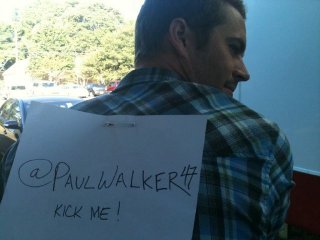
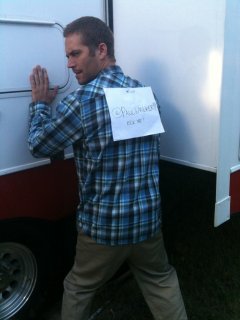
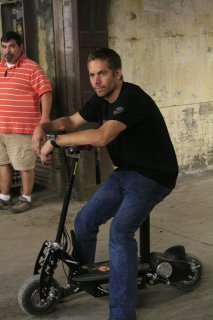
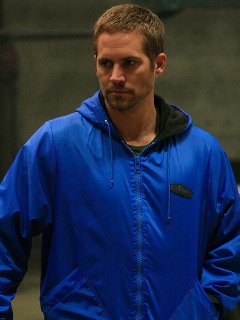
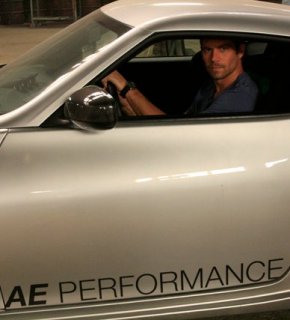
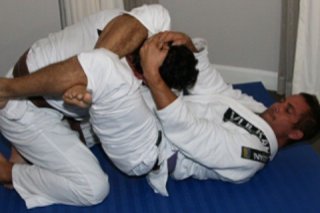

 I've always had such a huge crush on him!!!!!
I've always had such a huge crush on him!!!!!






































 .
.